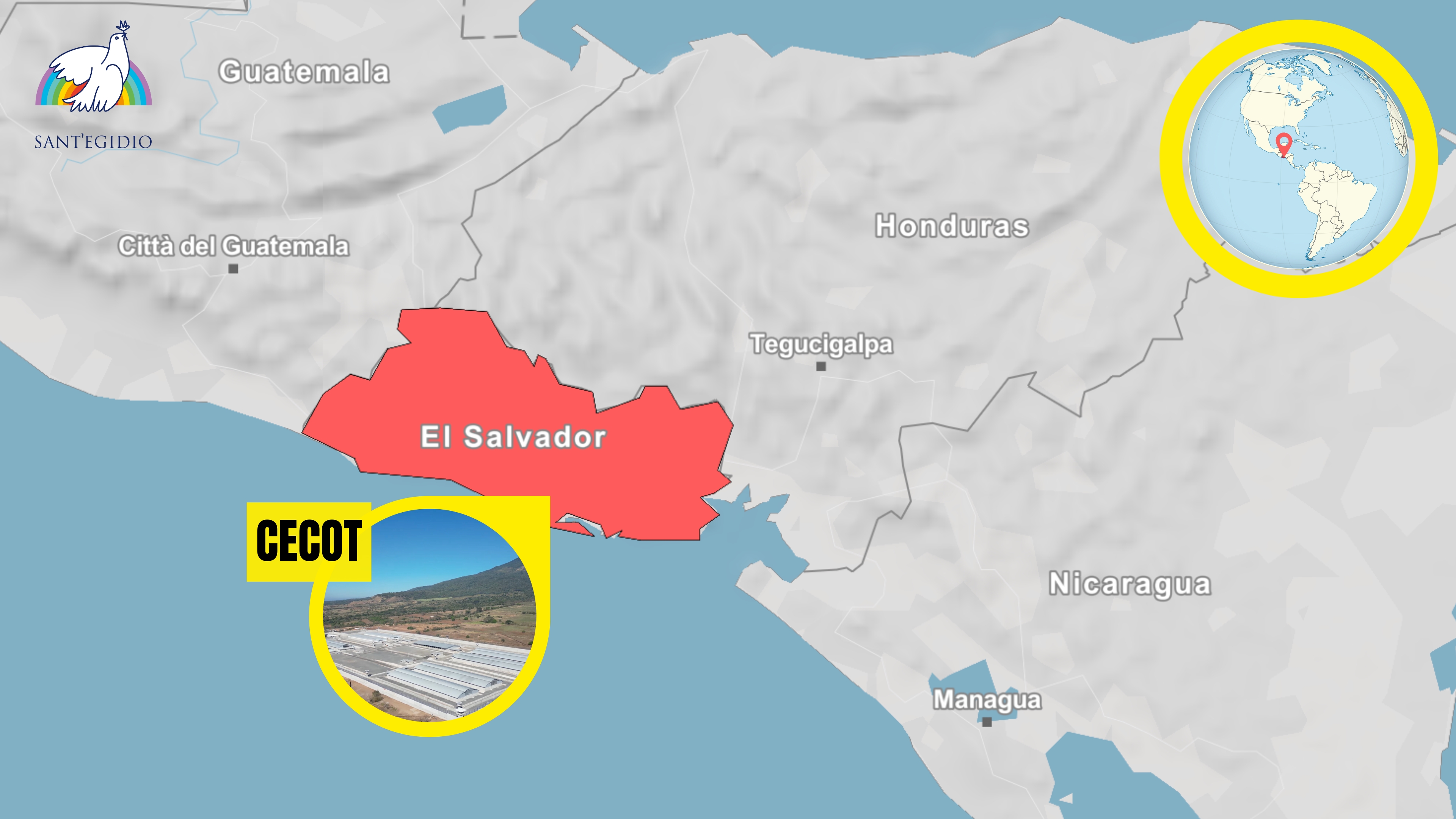The Episcopal Conference of El Salvador (CEDES) issued a pastoral letter on 29 May, appealing directly to President Nayib Bukele's government to stop hundreds of deported migrants from being detained in Salvadoran prisons. ‘We ask our leaders,’ the bishops wrote, ‘not to promote this country as if it were a mass international prison.’
‘These people are not criminals,’ wrote the bishops. 'They are our brothers and sisters, fleeing difficult situations and seeking a dignified life. We cannot, as a country, contribute to the policies of exclusion and repression of the great powers. Our mission is hospitality, not complicity.’
The reference is to the agreement signed last February between Washington and San Salvador, which provides for the forced transfer to El Salvador of irregular migrants – mostly Venezuelans – detained in the US for alleged immigration violations. The number of deportees who have already arrived is over 200, most of whom have no criminal record. However, they are still destined for the maximum security prison CECOT (Centre for Confinement against Terrorism).
Although the migrants are described as dangerous individuals, an investigation by the independent news outlet ProPublica, published on 30 May, debunks this narrative: only six of the deported Venezuelans have been convicted of violent crimes. All the others are people with clean criminal records who were seeking better opportunities by fleeing poverty, violence and political instability.
The problem, according to the episcopate, is that El Salvador has been living under a state of emergency for over two years, an extraordinary measure that has suspended several constitutional guarantees and normalised arbitrary arrests and summary trials. Migrants are treated not as asylum seekers but as suspects to be neutralised.
The Salvadoran Church's appeal is a public stance against the growing militarisation of migration issue and the idea that Central America should become a buffer zone. It is a call to moral responsibility in a context where security seems to have replaced justice.














